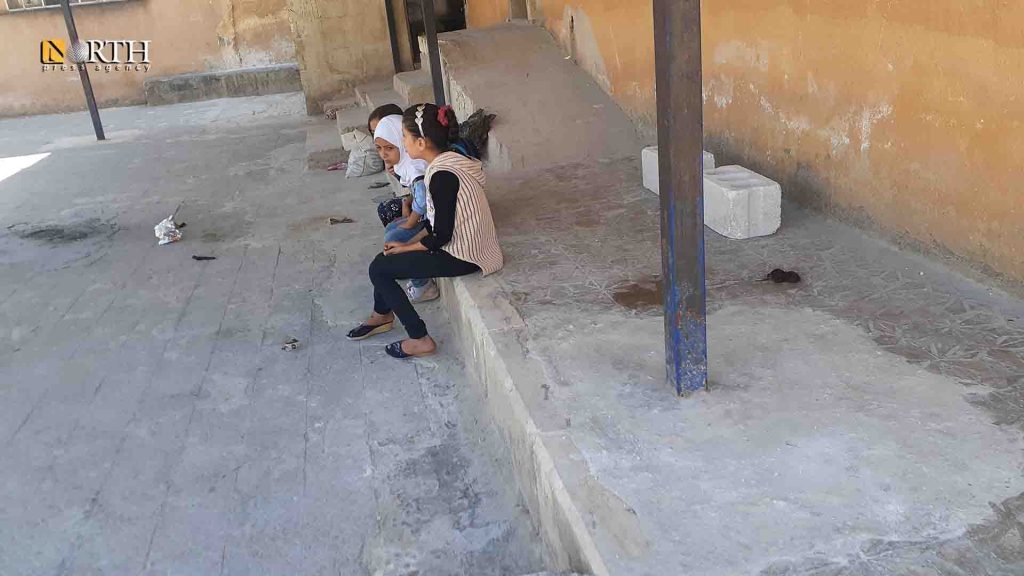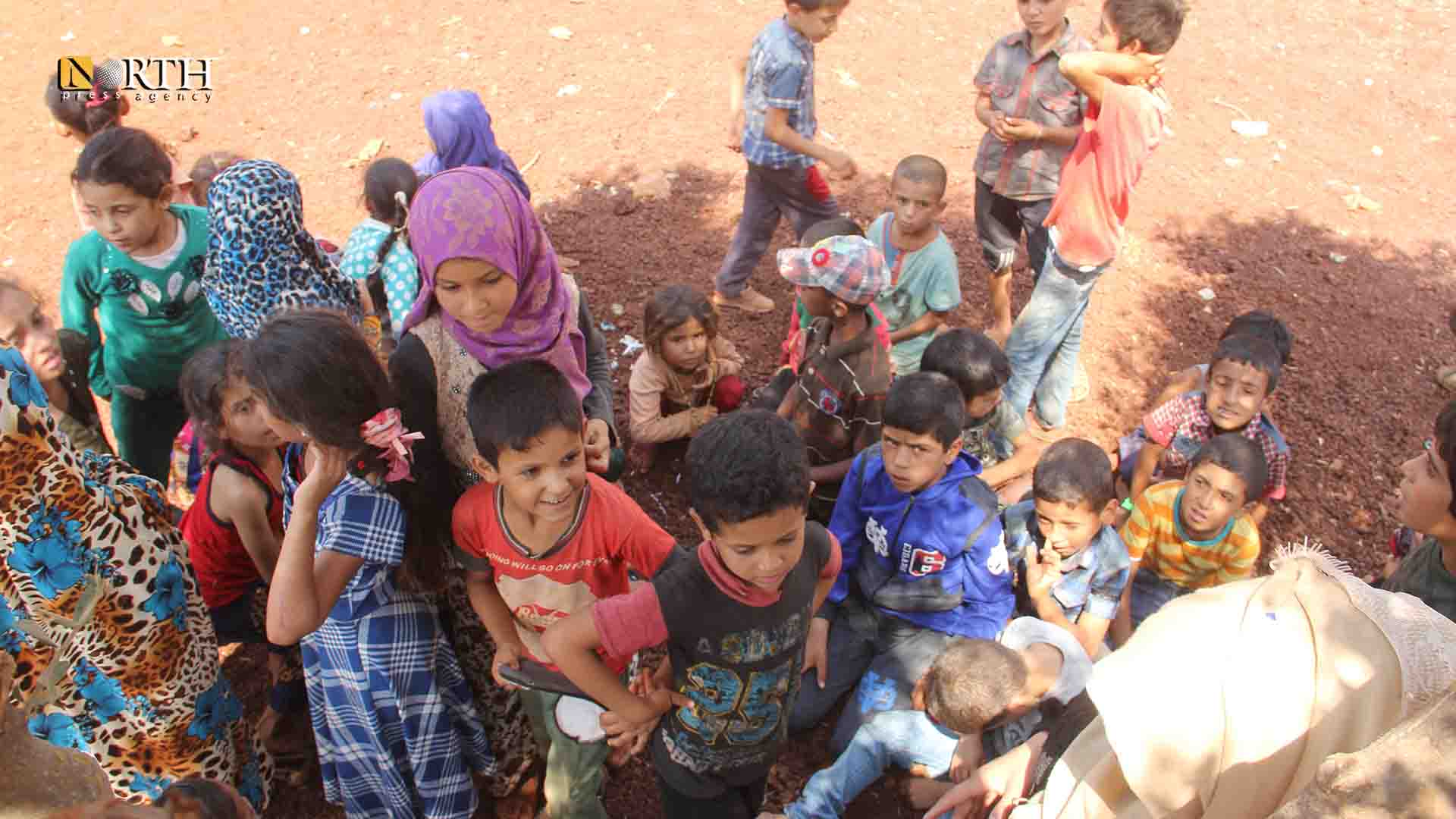IDLIB, Syria (North Press) – Education in Syria’s northwestern city of Idlib faces obstacles and challenges, which has led many teachers to stop working and deprived many students of learning.
Thousands of teachers were forced to leave their jobs after international organizations cut off funding to education, while parents are waiting for the start of the new school year without any clear idea of the structure and level of the educational process in the region.
“Schools in our city were closed most of the time because of repeated bombing and lack of safety,” said Muhammad Abu Walid, who was displaced from Maarat al-Numan and is a father of three children who have not attended school for two years.
He added that school attendance also stopped after their displacement due to the coronavirus pandemic, which prevented his children from continuing their education.
“I hope the new school year will be better,” he says.
However, teachers remain without pay after their volunteer work last year forced most of them to engage in other jobs, which would not allow them to commit to school attendance during the new academic year.

Abdulrahim al-Raslan, a teacher, said that he used to receive a monthly salary of no more than 120 US dollars, and even this small amount was cut off after charitable organizations stopped sending money.
He added that this is what made him and his family suffer from the high cost and devaluation of the Syrian currency, which forced him to start looking for a new job.
The region is controlled by the Turkish-backed Syrian Interim Government and rival Salvation Government, but schools and educational centers in Idlib and its towns and villages were funded by civil and international organizations, and their costs were covered by their support. However, most of them stopped after the work of these organizations had stopped.
Educational institutions affiliated with the Salvation Government and schools affiliated with the Directorate of Education of the Syrian Interim Government all depend on the support of civil society organizations.
Meanwhile, teachers affiliated with the Syrian government in Damascus continue to work in some schools and receive their salaries from the Idlib Education Directorate affiliated with the Syrian government, whose center has been transferred to the city of Hama after Turkish-backed armed groups took control of the region.
The most prominent supporter of education in Idlib is Chemonics International, which used to donate to more than 800 schools, but it has stopped since last September, which is an obstacle to the resumption of the educational process in Idlib.
Mustafa Haj Ali, Media Director of the Education Directorate in Idlib, said that Chemonics International covered 65% of the total support provided to the education directorates in Idlib.
Haj Ali added that a few organizations have remained in support of education, such as al-Watan Organization and al-Saed Charitable Organization.
“Despite this, we were not able to pay the teachers’ salaries and about 2,000 teachers worked voluntarily during the past year.”
On the other hand, a large number of students dropped out of schools during the past academic year due to the military campaign by government forces and its ally Russia at the beginning of this year.
Hajj Ali said that the military campaign was not the only reason for students dropping out; coronavirus constituted an additional factor for students, delaying their learning and depriving them of summer compensation.
Last year, the school dropout rate reached 44%, but an additional 120,000 students dropped out after the recent military campaign by the government forces, bringing the rate to 66%, according to Hajj Ali.

